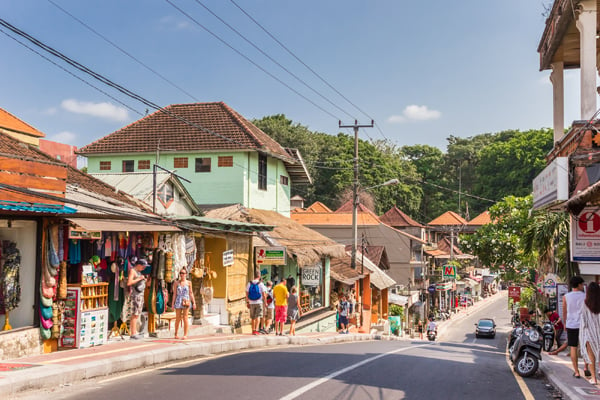
Bali, is a tropical paradise that has become a popular retirement destination for international retirees. The island offers a low cost of living, a warm climate, and a rich cultural experience. However, retiring in Bali also presents some challenges, such as navigating the healthcare system and adjusting to a new language and culture.
Cost of Living
The cost of living in Bali is significantly lower than in many Western countries. A retiree can live comfortably on a budget of $1,000 to $1,500 per month. This includes rent for a nice villa, eating out regularly, and hiring help for cleaning and gardening. However, it’s important to note that imported goods and luxury items can be expensive due to import taxes.
Climate
Bali has a tropical climate with warm temperatures year-round. The island experiences two main seasons: the dry season from April to September and the rainy season from October to March. Despite the rain, the temperatures remain warm, making it an ideal destination for retirees who enjoy a warm climate.
Healthcare
Bali has several international-standard hospitals, such as BIMC and Siloam, which offer a range of medical services. However, it’s recommended that retirees have comprehensive health insurance as medical costs can be high, especially for complex treatments and procedures.
Public Healthcare System
Indonesia has a public healthcare system, but it’s not available to foreigners. Therefore, international retirees need to have private health insurance. Some retirees choose to have a combination of local insurance for minor health issues and international insurance for major health problems.
Residency Options for Retirees
Indonesia offers a retirement visa for those aged 55 and over. This visa is renewable annually and allows retirees to live in Indonesia but not work. To qualify, retirees must show they can support themselves financially and have health insurance.
Parks and Recreational Activities
Bali offers a wide range of recreational activities, from exploring ancient temples and traditional markets to enjoying its beautiful beaches and lush landscapes. The island is also known for its yoga retreats and wellness centers.
Restaurants
Bali has a vibrant food scene with a wide range of restaurants. Warung Babi Guling Pak Malen is a popular local eatery known for its roast pork, while Made’s Warung offers a variety of Indonesian and international dishes. For seafood lovers, Jimbaran Bay is famous for its beachside seafood restaurants.
Learning the Language
While English is widely spoken in tourist areas, learning Indonesian can enhance your experience living in Bali. The Cinta Bahasa Indonesian Language School in Ubud offers Indonesian language courses for foreigners.
Local Culture
Balinese people are known for their friendliness and hospitality. The island has a rich cultural heritage, with a unique blend of Hindu and Indonesian traditions. Festivals and ceremonies are a common sight and offer a fascinating insight into the local culture.
Meeting People and Socializing
There are various expat communities in Bali where retirees can meet people. Joining local clubs and participating in community events is a great way to make new friends and integrate into the local community.
Volunteer Opportunities
There are numerous opportunities to volunteer in Bali, from teaching English to helping with conservation projects. Organizations like the Bali Animal Welfare Association and the ROLE Foundation welcome volunteers.
Housing Options
Most retirees in Bali choose to rent rather than buy property. Options range from modern apartments in bustling areas like Seminyak and Kuta to traditional Balinese houses in quieter areas like Ubud. Some retirees also choose to live in expat communities where they can enjoy the company of fellow retirees.
Transportation
While having a car can be convenient, it’s not necessary to live in Bali. The island has a reliable and inexpensive public transportation system. Taxis and ride-hailing services like Grab are also widely available. However, many retirees choose to get around on a scooter, which is the most common mode of transportation in Bali.


